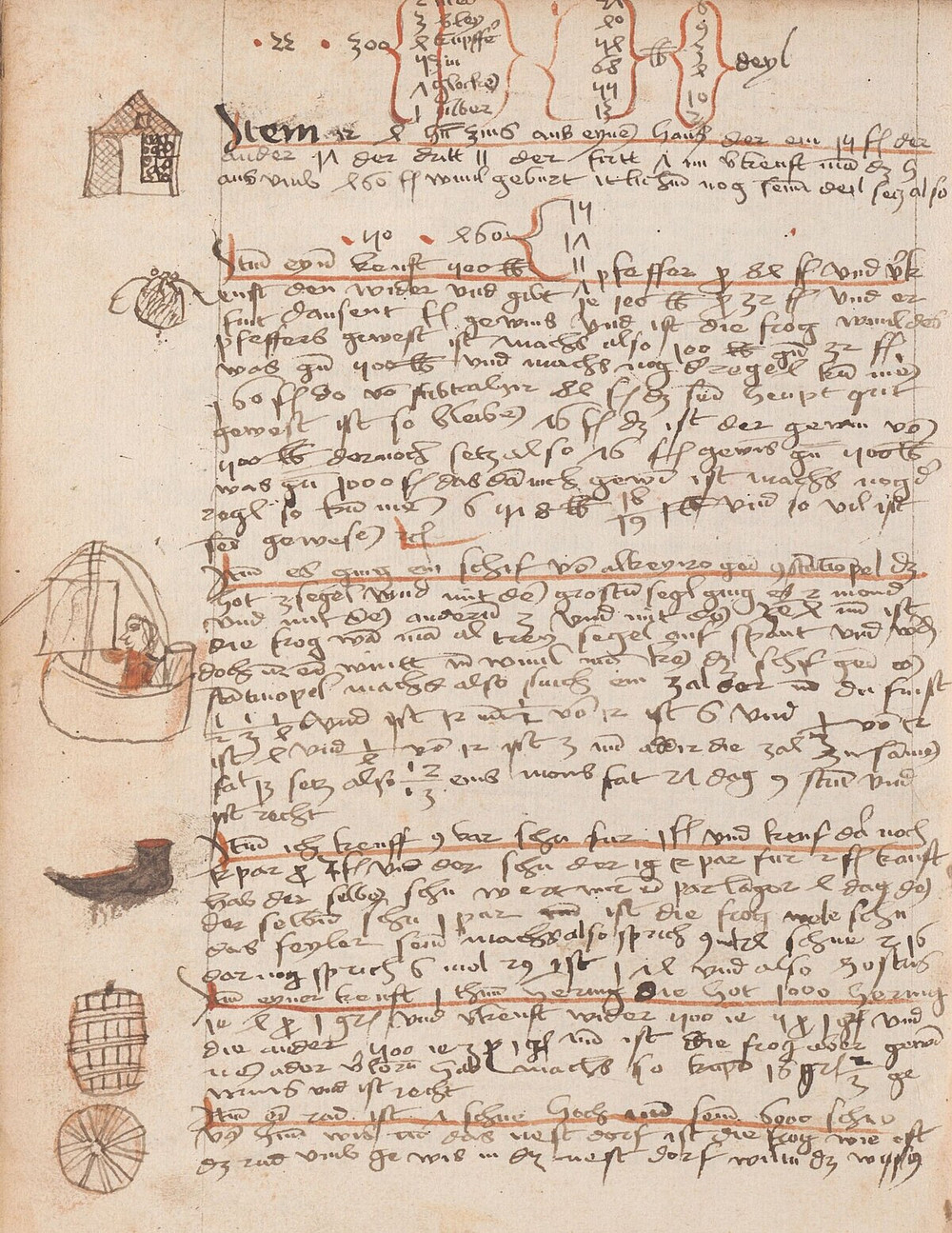Digital Humanities in the ERC Project "German arithmetical treatises in manuscripts of the late middle ages (1400-1522). A study on philology, history and culture based on a digital edition of the treatises" (PI Michaela Wiesinger, ÖAW)
How did the practice of arithmetic develop and spread during the transition from medieval to modern times? We know much about the development of mathematical theory and its dissemination in Latin, but little about how arithmetical knowledge spread in vernacular languages in the 15th and early 16th centuries. The translation and adaptation of arithmetic treatises and manuals provided new populations with access to mathematical knowledge, shaped the practice of arithmetic, and opened up new opportunities to teach arithmetic skills to individuals without higher education. These efforts also endowed European vernacular languages with new linguistic forms of abstraction, enhancing their potential to serve as tools for the modern scientific revolution. The ERC-Project ARITHMETIC (PI Michaela Wiesinger, ÖAW) ARITHMETIC examines handwritten German arithmetic treatises from their first appearance around 1400 until the time when printed arithmetic books became readily available in the early 16th century. These texts have not been studied before, although they are important evidence of the vernacular nature of mathematical knowledge, the interdependence of vernacular and Latin pragmatic literacy, and the connections between mathematics, science, and commerce. The tracts will be transcribed, digitally processed, and analyzed from historical, literary, and linguistic perspectives. One product of ARITHMETIC will be an "Assertive Edition" based on semantic enrichment. This assertive edition is produced and published at the Department of Austrian Centre for Digital Humanities. A detailed linguistic analysis focusing on semantics, syntax, vocabulary, and transmission context will lead to the reconstruction of an arithmetical discourse, provide information on the orality underlying the didactic texts, and allow the tracing of the authors and users as well as their educational and social background. This research aims to develop a new understanding of how arithmetical knowledge and practices of arithmetic changed in late medieval Europe and how an abstract and scientific language emerged in the German vernacular.

| Duration | 15.03.2023 - 31.08.2027 |
| Funding Funding program | European Commission HEU |
| Grant amount | € 299.468,75 |
| Unit | Department of Digital Humanities |
| Profile area Uni Graz | Dimensions of Europe |
| Principal investigator Uni Graz | Univ.-Prof. Dr.phil. Georg Vogeler, M.A. |
| Project staff | Mag. Dr.phil. Bernhard Bauer |
| Project homepage | https://www.oeaw.ac.at/en/imafo/forschung/historische-identitaetsforschung/projekte/arithmetic |